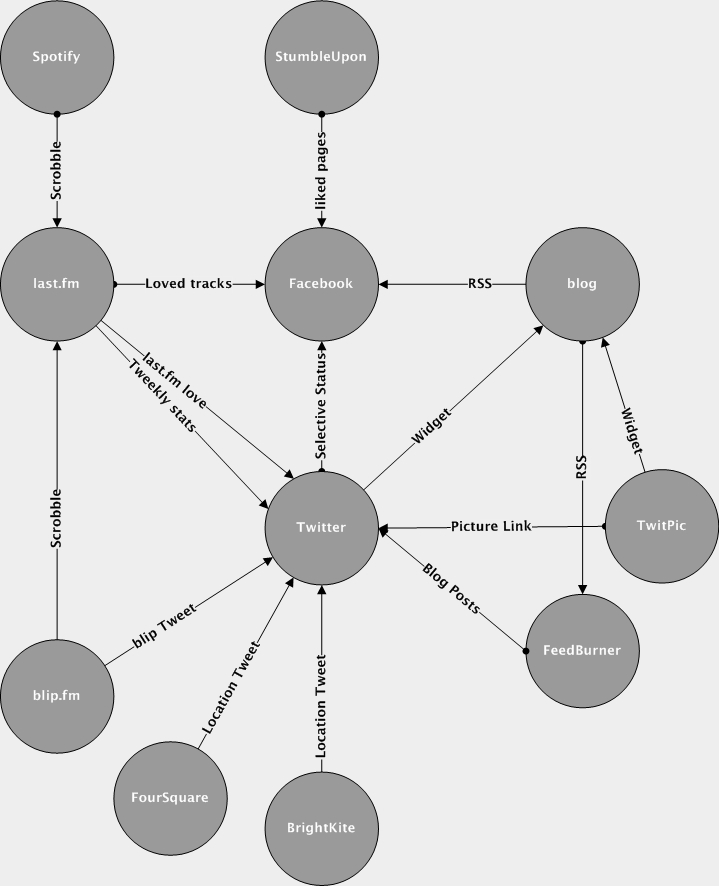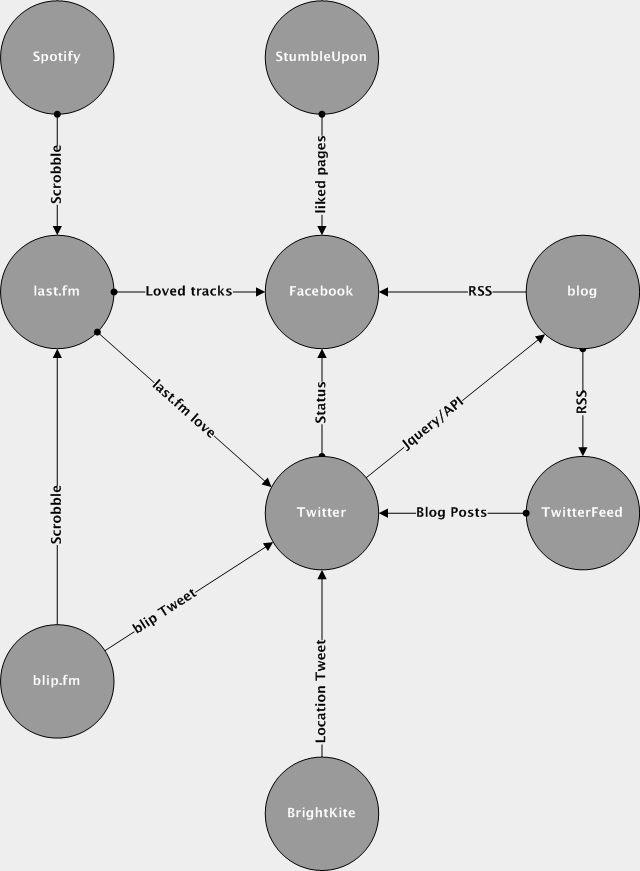So you want to start a company. Good for you. No, seriously, it will be good for you. Although there will inevitably be times when it will feel exactly the opposite. At the very beginning, the immediate problems are obvious "I need product, I need customers, I need an office, I need MONEY" and for the most part these are the things you do need and should doubtless set about tackling first. The difficulty is, that during these vital early stages, the pursuit of the necessary sometimes obscures the view of the less immediately so, leaving you exposed to accidents that doubtless lie in wait.
There is no magic formula, no panacea, nothing you can read or listen to that will give you all the answers. If there was, everyone would do it, would have done it, and the world of business would be a seething mass of overblown self-congratulation and champagne. But it isn't, it's a tough place where many, if not most, people fail, at least once. What follows is not exhaustive (and hopefully not exhausting) collection of topics that you might want to think about when getting on with the important day-to-day stuff, form filling, paying bills, picking your Porsche.
The most important thing to remember, there really is no need to fear, starting a company is good for you. You'll either succeed and go on to great success or you'll fail and will learn more than you can possibly imagine along the way.
YouBefore we go any further, lets talk about the most important person in your business, you. You need to understand some basic facts about yourself: who you are; what your strengths and weaknesses are; how you react to pressure, people. The more you know about yourself, the better decisions you can make about yourself with respect to your business. At almost every stage of the development of your business, self-delusion will always be your potential worst enemy. And the stark truth of this is that at some point in life of your company, you may no longer fit the bill. Sure, you started it, you probably still own most of it, but that doesn't mean that you can grow at the same speed as it. What you did in years 1 and 2 might be next to useless in years 3 and 4. Knowing when and if you have to get out of the way is perhaps the single most important decision you will have to make. Maybe you are a business genius, you will take it to the end and exit in a flourish of glory. If so, fantastic. But as you walk along that golden path, always keep one eye on your own performance and ask yourself the hard questions, "Is the business doing the best it could with me in charge?", "Could someone else do this better?". Self-aware, not self-delusional. You have to decide what you are trying to achieve, the success for the business or personal glory? Remember, success for the business is your reward. Glory don't buy you jack.
Be careful with your ego too. Maybe you get some investment; have some money to play with. This shouldn't be seen as an opportunity to show off, offer jobs to your mates and lavish yourself with
unnecessary flim-flam. The glory comes later, for now the money is about survival and progress.
Your AttitudeTied in with your newly honed self-awareness, is your attitude and how it impacts your business. We are all very different. Some are
gung-ho, some are over cautious, indecisive etc etc. Therefore, it's very easy to let emotion sneak into decision making and therefore it's very important to try and treat everything you do in a similar, rigorous manner to avoid your attitude getting in the way of doing the right thing.
Be positively negative. Expect the best but plan for the worst. Test any and all assumptions, test everything. Avoid sentences that start 'but surely' and look very closely at the implications on any that do. Don't get carried away, project for success/growth but have a set of "What if" plans that look at the how the world will look if it all goes a little wrong.
The other thing to be very wary of is fear. Fear is the one thing that will cloud your judgment above all other emotions. The times when you are likely to be most scared are the times when you need the clearest head. With fear comes weakness and indecision and whatever situation you are in, unless you manage the fear properly, people will recognise and exploit it. You're short on cash, you really need the sale. You can't let it show. No one will buy from a company if they seem on the edge. Walk tall, always.
CommunicationAll businesses are people businesses. It doesn't matter if you sit on your own in a locked room shipping widgets to Wisconsin, the degree to which your business will succeed will be in no small way be related to each and every interaction with the people in and around the business. So, you may now say "
but I'm not very good with people does that mean I will be hindered in my progress?" There's no way to sugar coat this, yes it does. It doesn't mean you are bound to failure either. You see, depending on the situation, being a heartless cynic may be of more use to you than the warm, approachable side of your nature. The truth is, the most successful can usually do both and many more styles besides. You could make the accusation that it's all a bit of an act to match the situation and you wouldn't be far off. But before you get too near the Yellow Pages and the phone number for acting classes, at the very heart of all the questions of style and approach is one simple thing, communication. If you can communicate, however you get your message across, you're probably off to a good start. Unfortunately, this has to cover all types of communication be it verbal, written or, in some cases, non-verbal. In the course of the business you will meet people, talk to them, some you'll know, some you'll meet cold. You'll be on the phone, writing emails, business plans, endless other documents and all with the need to precisely communicate their meaning and leave the right impression.
The truth is, there's probably not that much you can do about any of this now. It's probably a little late to become a new person, to change how you communicate drastically. The vital thing is that you first understand the important role that your interaction with people has to play in the success of your business, even if that does mean employing someone to do your talking and writing for you.
Founding FathersOK, you've had an idea, it's a real winner, you just need to get it off the ground. But you can't do it alone. What do you do? You know people don't you? Some of them are really good friends, and they can do stuff, they'll help you out. In fact, you could just bung them some equity and they'll work for nothing, it's not like giving them equity will cost you anything and it's not as if you can afford to pay them now anyway. That's a great idea. Right?
Well, frankly, no, it isn't. There is an extremely good chance that, as your business grows, your friend will end up being as much use as something that steals a big chunk of your equity for no return. And, worse than that, the inevitable time will come when, for the sake of the business, you have to replace them. Then it gets really messy. There's a fight, lawyers are involved, you lose a good friend and most likely don't get any or all of your equity back. The very equity that you need to re-finance the business at a crucial time, so you dilute yourself, your business ends up getting owned by an accountant and they eventually remove you too for employing your friend in the first place.
Maybe that's all a little exaggerated but hopefully it makes the point. A seemingly sensible and harmless decision in the early days of the business can come back to haunt you.
All this is not to say that getting friends to help you is a bad thing but doing it on the right basis is vitally important. Making no long term promises is often wise and there are many other ways to handle the issue of reward, use share options not shares or accrue time worked for payment later. Of course, your friends may be exactly what your business needs now and in the future, in which case, they will probably understand the most appropriate basis for engaging with your company.
You only get one chance to found the company, pick the right people and always remember, friends now can easily become burdens later.
FamilyYou may not immediately see your family as a major consideration in your business. But life in a start-up company isn't like any other job and therefore the need for the understanding and support of your family is very important. A
unsupportive family, whilst not making the business fail, will be a difficult distraction at a vital time.
RecruitmentYou may stay on your own forever but very likely you'll be recruiting staff as your business grows. It cannot be over emphasised how important getting this right is, especially in the earliest stages of development. The simple fact is that most problems you will ever have with staff can be eliminated at the recruitment stage; if you get it right.
Get an agency or, more importantly, an agent. Don't worry too much about which company you use but only use one and decide which one using two criteria. How personal a service you can get from an individual you trust and how cheap you can make them. As a start-up, you don't necessarily look like a big prospect to a recruitment agency so you have to sell potential to them. One person today, could be ten tomorrow and a hundred next year. Whether you actually do it or not, almost make it look like there is a competition for your business at the early stage. Try to get the rate down and, when they have offered you their best deal possible, pick the agency you want to use and tell them you will only use them if they reduce their rate in return for exclusivity.
Understand what you are like as an employer, how you like people to be and make sure that you recruit for the culture you want to create. There is no point going for choir boys if you like to go skateboarding at lunch time. These are people you will spend a lot of time with and they need to want to work for your success. The more they understand and empathise with you, the more they will contribute to your success. In a similar vein, the work of retaining people successfully in your company starts before you have employed them. Even if you can get square pegs into round holes, they are more likely to fall out.
NetworkingWhen starting a new company, most people often get networking wrong. There is nothing worse than a room full of small company
MD's all desperately trying to sell to each other when none of them came to buy anything. Used well, networking is massively useful but there is only one thing to remember about networking; you reap what you sow. Going into it only hoping to receive will ultimately prove fruitless. Take some time to help people, even if there is no immediate obvious benefit to you, and eventually it will start to bring dividends. It is a much longer game, but certainly one worth playing and worth playing well which means remembering that what you get out of it is in proportion to what you put in.
AdvisersYou will encounter many people along the way that want to give you advice. If you raise some money or start to get successful, this number will increase ten-fold. Most of this advice will be good but knowing who you can trust is the most important consideration, especially when the advice starts to conflict.
The first thing to look for is signs that those giving advice actually understand what your business is all about. Sentences that start "
I remember when I" had better be in context to the discussion or you should start to be wary. There is an immense amount to be gained from war stories, examples and the sage words of people who have been there before, but you have to be sure that they are applying their thoughts to your situation and not just enjoying the sound of their own voice. Certainly, in the areas such as business strategy, the tendency for such advisers to steer you down their well trodden route is very strong. This doesn't mean that it is necessarily the best path for your business and you should be careful not to allow strategy to be guided into someone
else's comfort zone, simply because they have misunderstood your business. In many ways, advisers who listen more than the speak are often best.
This can often be a problem if you raise venture capital. When you get the money it will usually come with a loss of some control and this often comes in the form of people introduced to you, appointed by, your investors. There is every chance that these are good people, after all why would anyone investing in you give you a bad person? But there is always a chance that there is an element of cronyism at work; the old boys network kicks in and you are offered a trusted pair of hands, known to the investors, friend of the investors, someone due a favour by the investors. At this stage you've just toiled for months, years to get the money so you are probably quite easily convinced of their fit to your company. But be strong and be wary. Be prepared to push back if this person isn't a good fit for you, however strong their CV appears to be. Always remember, this is about making a success of your business in the future, not about whatever success they may have had in the past.
FlexibilityThere is always a fine line with flexibility. If people see you alter your vision too much, they'll accuse you of not having a clear strategy and accuse you of weakness and indecision. If you stick firmly to your beliefs, you will more than likely be perceived as too rigid, perhaps even delusional and you will be similarly criticised. In short, there is no right answer but you must be prepared to adjust strategy to maximise the chances of success of the company. Your original idea might be great, but on first contact with the market it doesn't go down to well, then get ready to flex. After all, you are trying to make a success of your business rather than be recognised as a insightful, yet flawed, visionary.
EquityAt the end of every company rainbow lies the pot of gold you get from selling the company, the magical exit. In the beginning you have 100% but, as people will never tire of telling you, 100% of nothing is nothing. It's all about achieving balance; trying to keep enough so that there is the reward you are after at the end, but using enough that you can make a success of the company and get to the gold.
This is not an easy balance to strike and it is sometimes that circumstances can take control of far more than you, but there are some basic considerations to always keep in mind.
You should only use equity to get things you absolutely need. This may seem obvious but, as we've already discussed, the temptation to give too much away in the beginning can be quite strong, especially when you are looking around for help. But with your equity being the only free thing you have to use to make progress, you need to preserve it when necessary but release it in the right amounts and the right time. Above all, don't be greedy. Jealously clinging to your equity in the thought that you are maximising your eventual payout can ultimately be self-defeating. Remember, 100% of... well you get the point.
There are two main uses for your equity: to get people or to get money. You will, at some stage, need some talent around you and, when cash is perhaps tight, equity can be a good way of drawing someone in. This is where you have to bring in some good judgment. You need to assess the potential impact the individual will have on your business but also what impact the levels of equity your are offering will have on them. There is no point bringing them in with a small percentage only to lose them later when they realise they are slogging their guts out simply to make you a millionaire and them a couple of weeks in the Maldives. On the flip side, giving away too much to someone who has not enough positive impact will cripple your ability to correct the situation later. It's a complex, yet fundamental simple balance of rewards, yours and theirs. Equity is a key tool for attraction and retention of the people you will need. But 'need' is the key word. Some skills, people are rare and special, some are more of a commodity. Only use equity for the special ones, anyone that you can replace relatively easily doesn't need to get any.
If you never have to raise any funds then well done you. For the rest of us mortals, the game, and it is a game, of equity financing is no fun to play and the rules are, at best, vague. There is one thing you can be sure about, a company on the up will do an awful lot better than one on the way back down again. Leave it too late through over-optimism or greed and you easily find yourself losing the lot just to keep going. Get it right, keep your valuation looking good and you might just get the cash boost to send you into the stratosphere for the loss of very little.
Equity can also be a major distraction. Remember one key phrase and repeat any time the topic comes up; "
You have to bake the cake before you can cut it up". People who are more interested in what their upside is going to be instead of getting on with some hard work should be given a long, cold stare. Obviously, you will have to distribute equity as shares or options, but make a reasoned and balanced decision and put the whole thing to bed as quick as you can. Don't let it fester, don't leave it ambiguous and NEVER make any promises or offers that you can't substantiate.
MoneyIt may be self-evident that running out of money is a very bad idea for the health of your business but it isn't necessarily as straightforward to stop it happening. Especially in the early days, keeping a close eye on whatever funds you may have is clearly a very good idea. So, get the easy bits right. Be in control of your finances. Know what is going on, get a good relationship with your bank and makes sure you get all the information you need in a timely manner. There is absolutely no excuse for not knowing what is going on in your bank account; where you stand with creditors, debtors.
Always think about cash preservation. That isn't subtle code for spend nothing, employ cheaper people, it's just about getting value for every penny you use. Make sure you don't skimp on the basics. Get good, stable infrastructure. Trying to do key things on the cheap will always come back to haunt you.
A really easy way to eat up all your early stage money is to employ too many expensive people too quickly. At the very beginning, only employ the people you
absolutely need to progress. Sure, your business plan may say that by next year the revenue stream and growth with be such that you will need these people. But your business plan isn't history or fact, it's a guess. So, expensive recruitment to prepare you for what might happen very often leads to a premature shortening of your cash horizon when the business plan doesn't pan out the way you had hoped. Don't fool yourself into thinking that you really need all these chiefs now. If they are really keen on the opportunity, they'll wait until it becomes fiscally sensible. And if they won't, question their judgement or motivation.
That extends to how you make you and your company appear externally. Simple things like literature, business cards, websites are your opportunity to make one man in a shed look like a good sized company. Sure, you maybe don't sell through a website, it may not be your main marketing focus, but you can use it to market defensively, to look credible, professional and BIGGER when people are seeking you out. None of this need be expensive, just realise it is important and invest the right amount in projecting the image of the company you want to become, long before you get there.
Labels: technology





















